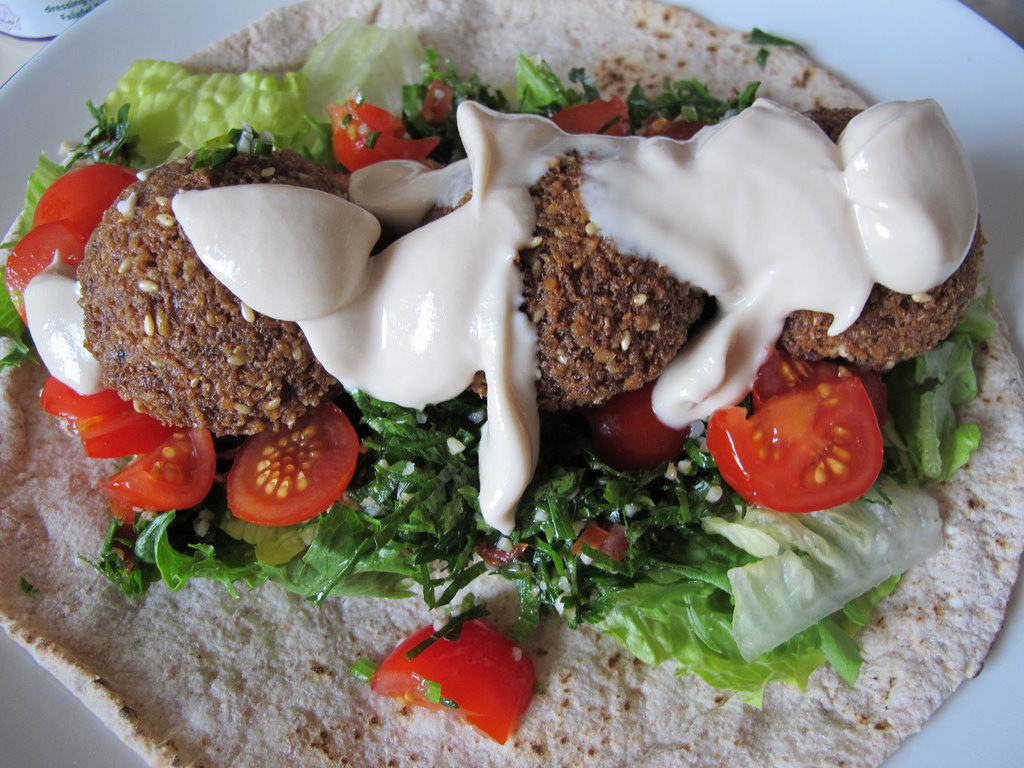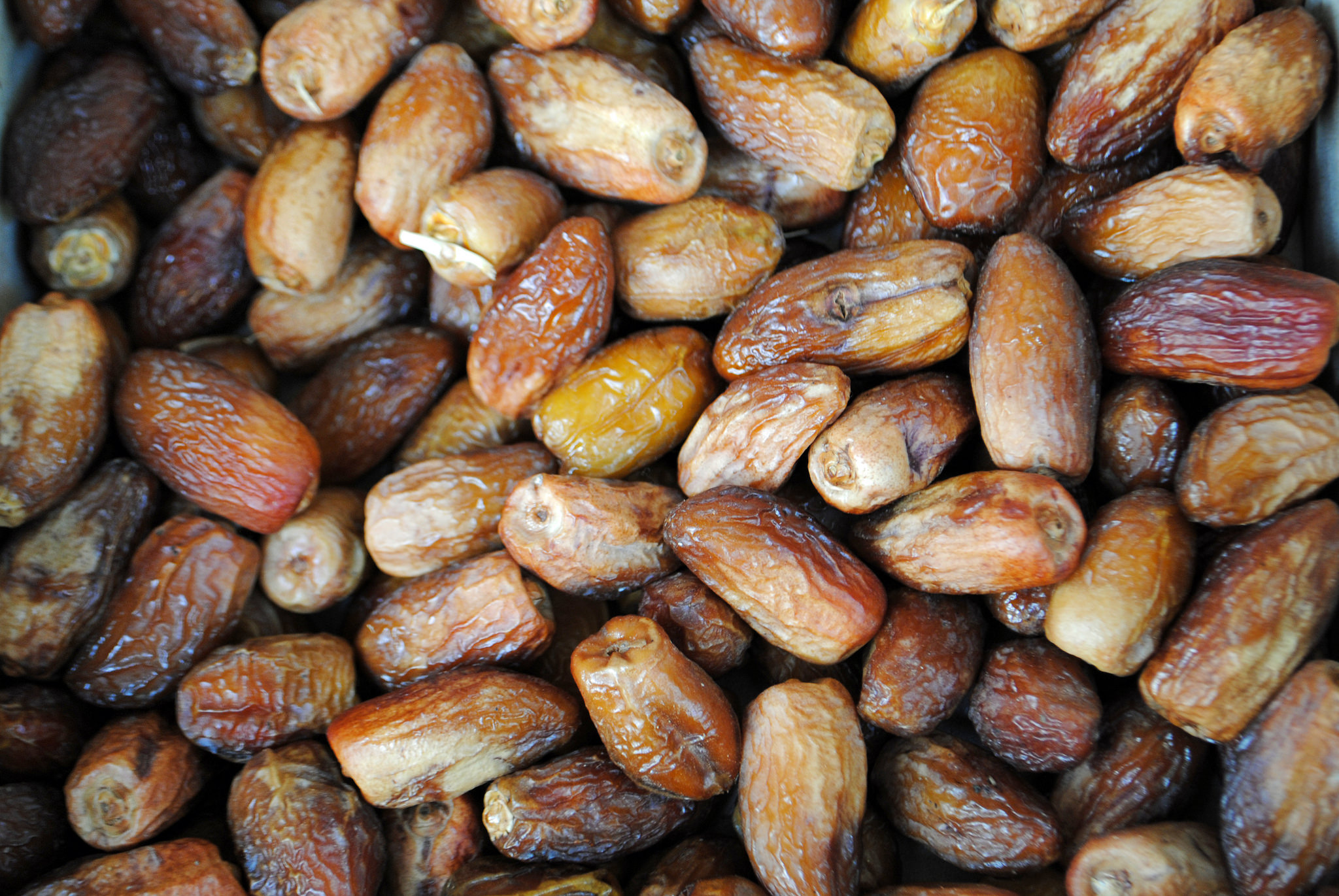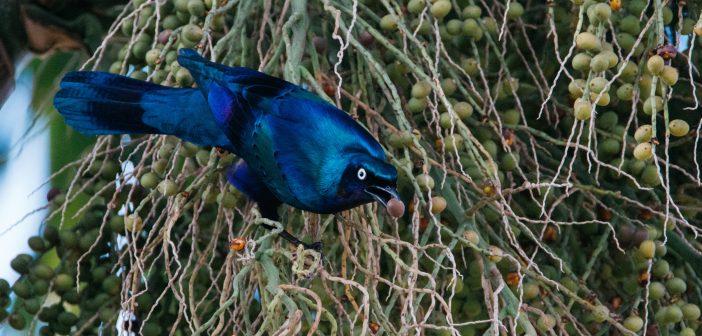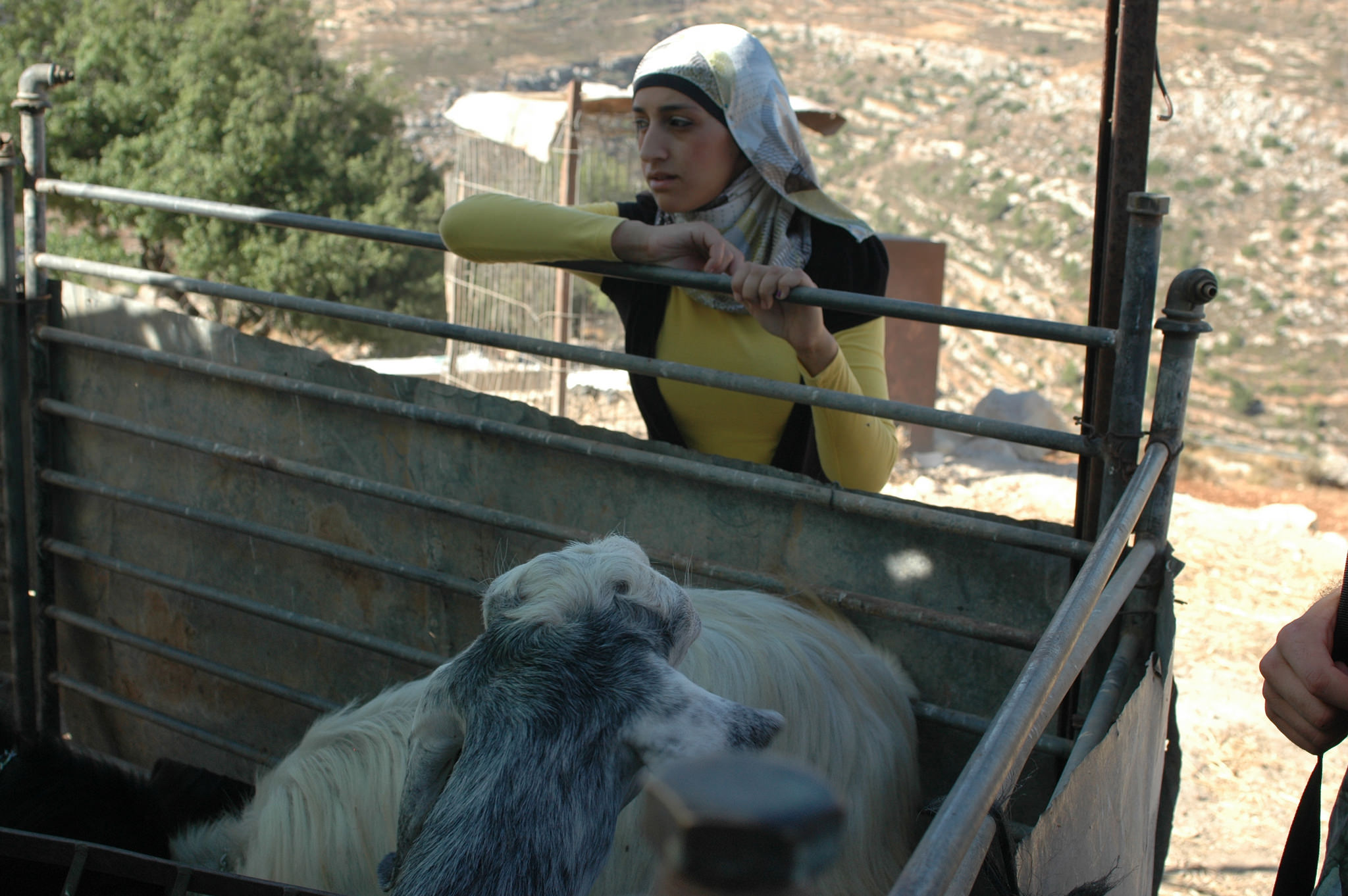By Ahmed Safi
Not a lot has been said about veganism in Islam; even interpretations that attempt to deal with the subject often misrepresent Islam and its teachings, which are taken from the Quran and the Sunna.
From our study of existing literature relating veganism to Islam, the majority do not deal with the question of allowing or prohibiting eating meat in Islam. We have found, however, that the majority of writings come from Muslims living outside of the Arab world. For this reason, the religious teachings of these authors may have undergone western influence. Furthermore, they may not have considered the significant changes in technology and development in the past 1400 years since the Quran was written. In this article, we instead wish to explore how veganism relates to Islam in the modern Arab world.

Falafel, a traditionally vegan Middle Eastern dish (image credit: Rain Rabbit, CC BY-NC 2.0)
The concept of veganism means abstaining from consuming any animal products, and to substitute them with the now widely available vegan alternatives. This does not mean that a vegan Muslim claims that eating meat is prohibited, because a Muslim cannot prohibit something that God had allowed: “do not prohibit the good things which Allah has made lawful to you.” [1]
However, eating meat is not a religious obligation, and according to Islam, a Muslim is not rewarded for eating meat, nor is it a sin to abstain from consuming it. Therefore a Muslim is completely free to become vegan for ethical or personal reasons. Many people choose a vegan diet because it is healthier for our bodies and our planet, as the meat industry today is the source of many harms for our health and for the environment. [2]
1400 years ago, Arabs depended on livestock as a main source of food and clothes. The desert climate did not allow them to grow vegetables or grains or fruits except for dates. Therefore, animal meat was consumed, but in moderation and in a more merciful way, unlike today’s factory farms.
Moreover, many of the technological developments in the meat industry contradict the Muslim regulations on how to slaughter animals. There are strict conditions in Islam concerning raising and killing animals. Most of them explain that animal slaughter should cause the least possible suffering to the animal. These teachings also concerned the treatment of animals, such as how to move them from one place to another. Today, the meat industry looks very different in the Arab world.
Islam condones equality between humans and animals: “‘Shall we be rewarded for showing kindness to the animals also?’ He said, ‘A reward is given in connection with every living creature.’”
Furthermore, Islam condemns killing animals for sport: “Who has done this? Allah has cursed him who does this. Verily Allah’s Messenger invoked a curse upon one who made a live thing the target (of one’s marksmanship).”
The Quran also contains many verses that focus on the importance of fruits and vegetables. One verse, for example, begins with the vow “By the fig and the olive” [3], and tells the story of how Mother Mary, in anticipation of Jesus’ birth, was told by God to eat dates from the palm tree next to her; He did not, however, tell her to eat meat or chicken.

Dates, traditionally eaten to break fast during Ramadan (image credit: Cait, CC BY 2.0)
Also, when the Quran mentions paradise, it says that it contains fruits and vegetables in addition to meat: “and We will provide them with fruit and meat from whatever they desire… and fruit of what they select, and the meat of fowl, from whatever they desire… and fruits from whatever they desire.” [4] We can conclude that the Quran does mention meat as a source of food, but it focuses more on fruits and gives it more importance.
Islam does allow the consumption of meat and animal products, but it accompanies this with a list of strict conditions on how to treat the animals ethically and prevent their suffering as much as possible. It also does not prohibit veganism or consider it a sin. Thus, everyone has the complete freedom to choose a vegan diet and abstain from eating meat.
Finally, Islam appeared in a time and a place in which the climate did not allow the planting of fruits and vegetables as it does today, and consuming meat was done in moderation. In modern times, this looks remarkably different, as the excess of meat production that exists nowadays results in enormous suffering for animals and our planet, and health risks for human beings.
References:
[1] Quran 5:87. [2] http://www.unep.org/resourcepanel/Portals/24102/PDFs/PriorityProductsAndMaterials_Report.pdf [3] In-book reference: Book 42, Hadith 87 [4] USC-MSA web (English) reference: Book 21, Hadith 4816(deprecated numbering scheme)
[5] Quran 95:1 [6] Quran 56:20-21English translation : Vol. 5, Book 42, Hadith 4354
(Featured image: starling eating from a date palm. Image credit Emilie Chen, CC BY-NC 2.0 / cropped)







2 Comments
In the climate of the Middle East, previous to the invention of the refrigerator, meat could be saved. When an animal was slaughtered, it had to be consumed immediately. Therefore, the pattern (which developed already before Islam and continued also with Islam) was to reserve the slaughtering of an animal to a special occasion when many people were gathered together, and the host would share the meat with the guests. When the family was living their normal daily life and there were no guests, what they ate was mostly vegan, or at least vegetarian – not necessarily out of principle, but simply because to slaughter an animal would have been a waste.
It is very common experience that when a vegans go to a Middle Eastern cuisine restaurant, they would find something to eat more easily than is a European cuisine,
So, in order to become a vegan, what Muslims can do is simply stick to the traditional ways of how their families were eating on ordinary days, and a void the way of eating on days of celebration as well as avoiding the ways which were introduced under Western influence and with refrigerators available. It is not too difficult at all.
In the climate of the Middle East, previous to the invention of the refrigerator, meat could be saved. When an animal was slaughtered, it had to be consumed immediately. Therefore, the pattern (which developed already before Islam and continued also with Islam) was to reserve the slaughtering of an animal to a special occasion when many people were gathered together, and the host would share the meat with the guests. When the family was living their normal daily life and there were no guests, what they ate was mostly vegan, or at least vegetarian – not necessarily out of principle, but simply because to slaughter an animal would have been a waste.
It is very common experience that when a vegans go to a Middle Eastern cuisine restaurant, they would find something to eat more easily than is a European cuisine,
So, in order to become a vegan, what Muslims can do is simply stick to the traditional ways of how their families were eating on ordinary days, and a void the way of eating on days of celebration as well as avoiding the ways which were introduced under Western influence and with refrigerators available. It is not too difficult at all.